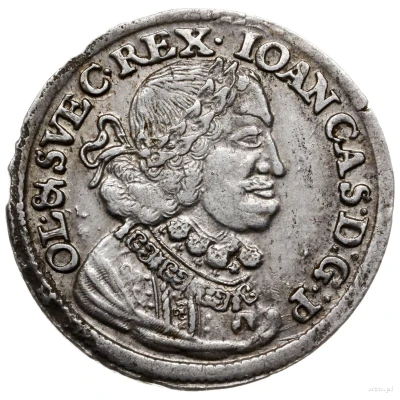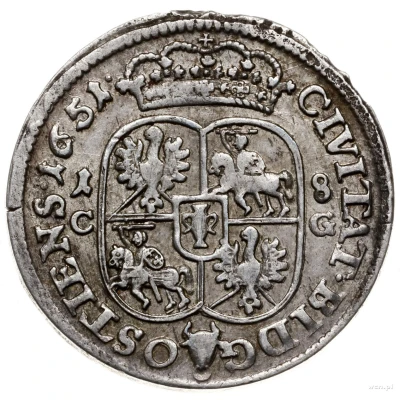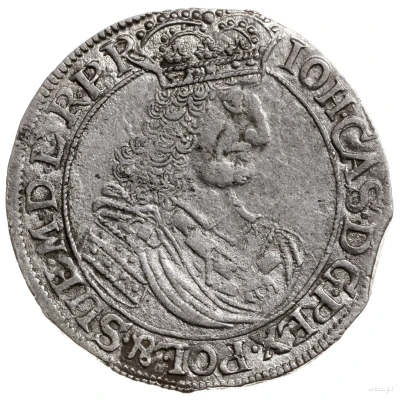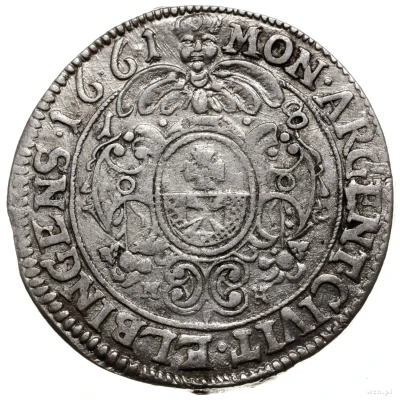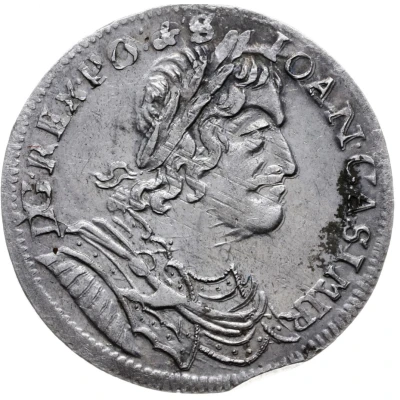
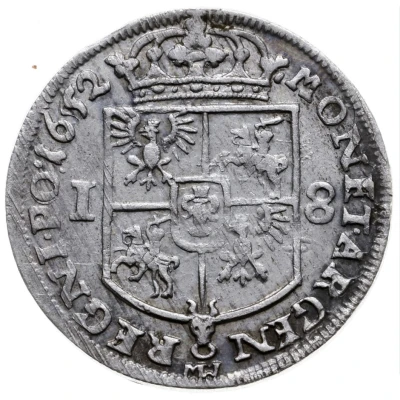

© Warszawskie Centrum Numizmatyczne s.j.
Ort koronny / 18 Groszy - Jan II Kazimierz Waza Wschowa
| Silver (.875) | 5.6 g | 27 mm |
| Issuer | Polish–Lithuanian Commonwealth |
|---|---|
| King | John II Casimir Vasa (1649-1668) |
| Type | Standard circulation coin |
| Years | 1650-1655 |
| Value | ¼ Thaler (¼ Talara) (2) |
| Currency | First Zloty (1573-1795) |
| Composition | Silver (.875) |
| Weight | 5.6 g |
| Diameter | 27 mm |
| Shape | Round |
| Demonetized | Yes |
| Updated | 2024-10-07 |
| Numista | N#168440 |
|---|---|
| Rarity index | 93% |
Reverse
Crowned quartered arms of Poland-Lithuania with Vasa arms in center divides value. At bottom of arms, ox head (Wieniawa) and mintmark
Script: Latin
Lettering:
MONET ARGEN REGNI PO 1652
1 (_) 8
MW
Unabridged legend:
Moneta argentea regni Poloniae
18
Moneta wschowensis
Translation:
Silver coinage of the Kingdom of Poland
18
Coinage of Wschowa
Comment
Mint: Wschowa - Fraustadt - Всхова - 弗斯霍瓦The obverse legend refers to Jan Kazimierz' claim to the throne of Sweden, as a member of the House of Vasa, and son of Sigismun III who had reigned as King of Sweden in the 1590s.
The ox head symbol is the mark of crown treasurer Boguslaw Lesczynski
Kopicki 1695
Kopicki 1700
Kopicki 1701
Kopicki 1702
Kopicki 1703
Kopicki 1712
Kopicki 1713
Pictures: © WCN
Kopicki 1720a
Kopicki 1720b
Kopicki 1721
Kopicki 1724
Kopicki 1727
Kopicki 1728
Kopicki 1729
Interesting fact
One interesting fact about the coin is that it was minted during the reign of Jan II Kazimierz Waza, who was the King of Poland and Grand Duke of Lithuania from 1648 to 1668. He was a member of the powerful Vasa dynasty, which had a significant impact on the political and cultural landscape of Eastern Europe during the 16th and 17th centuries. The coin's design, which features an image of the king on one side and the Polish coat of arms on the other, reflects the importance of the monarchy during this time period.
